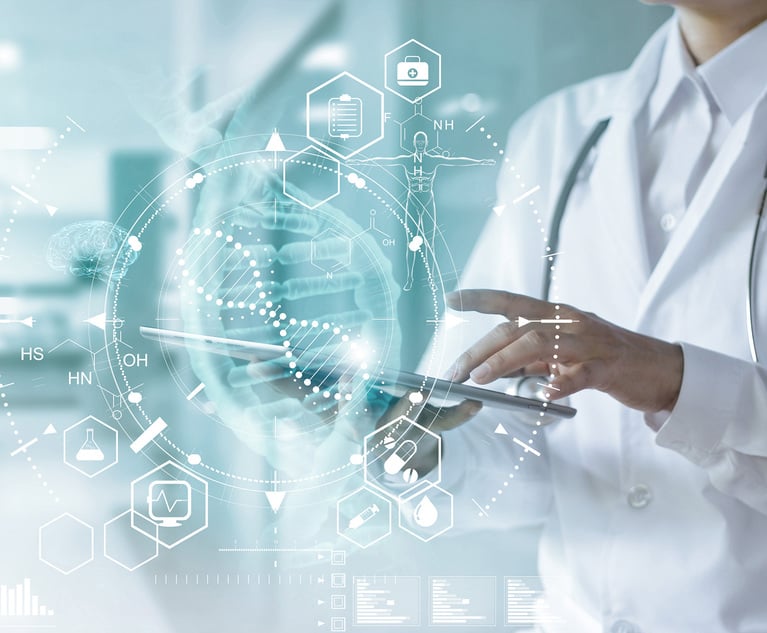 Used lithium-ion batteries. Image by shutterstock.
Used lithium-ion batteries. Image by shutterstock. Lessons Learned from Lithium-Ion Battery Litigation
As manufacturers, retailers and suppliers continue to face exposure for exploding lithium-ion batteries, it is important that they take proactive steps to protect themselves; this article provides helpful and practical advice.
December 10, 2020 at 02:00 PM
9 minute read
Thanks to improving technology over the past decade, lithium-ion batteries have evolved by leaps and bounds, as has consumer reliance on that technology (even more so in this COVID-19 era). One particular battery—the 18650—helped commercialize the otherwise difficult physics and chemistry of developing longer lasting, rechargeable batteries for consumer use. Unfortunately, the 18650 has also developed notoriety due to a spate of lawsuits filed on behalf of e-cigarette users who have experienced injuries when the 18650 powering their e-cigarettes exploded. With the global market for e-cigarettes expected to reach $24.5 billion by the year 2027, it is likely these cases will continue to permeate products liability litigation well into the mid-to-late 2020s, creating unique challenges for manufacturers, retailers and suppliers, as well as the attorneys who counsel them. Though the 18650 still remains available, many of the following lessons learned from vape litigation have upscale application to all lithium-ion battery litigation.
Background
Lithium-ion batteries first emerged as viable energy sources in the early 1990s. They are now the most popular type of rechargeable battery for consumer electronics, opening a whole new dimension in product development. Products that we interact with on a daily basis—cell phones, tablets, computers, vacuums, solar products, and cars, just to name a few—can run entirely on a lithium-ion power source. Yet the characteristics that make the lithium-ion battery a superior power source also contribute to its dangers.
This content has been archived. It is available through our partners, LexisNexis® and Bloomberg Law.
To view this content, please continue to their sites.
Not a Lexis Subscriber?
Subscribe Now
Not a Bloomberg Law Subscriber?
Subscribe Now
NOT FOR REPRINT
© 2025 ALM Global, LLC, All Rights Reserved. Request academic re-use from www.copyright.com. All other uses, submit a request to [email protected]. For more information visit Asset & Logo Licensing.
You Might Like
View All
Lack of Jurisdiction Dooms Child Sex Abuse Claim Against Archdiocese of Philadelphia, Says NJ Supreme Court
5 minute read
Loopholes, DNA Collection and Tech: Does Your Consent as a User of a Genealogy Website Override Another Person’s Fourth Amendment Right?
Law Firms Mentioned
Trending Stories
- 1Bar Report - Feb. 10
- 2Morgan Lewis Adds 4 IP Partners in Orange County, 1 in Seattle
- 3Delaware DOJ's Hume Is Named Newest Magistrate In Chancery
- 4Trade Wars: Five Tips for Legal Teams to Manage Tariffs and Trade in Trump II
- 5Balancing Attorney-Client Privilege With a Lawyer’s Right to Defend Against Allegations of Wrongdoing
Who Got The Work
J. Brugh Lower of Gibbons has entered an appearance for industrial equipment supplier Devco Corporation in a pending trademark infringement lawsuit. The suit, accusing the defendant of selling knock-off Graco products, was filed Dec. 18 in New Jersey District Court by Rivkin Radler on behalf of Graco Inc. and Graco Minnesota. The case, assigned to U.S. District Judge Zahid N. Quraishi, is 3:24-cv-11294, Graco Inc. et al v. Devco Corporation.
Who Got The Work
Rebecca Maller-Stein and Kent A. Yalowitz of Arnold & Porter Kaye Scholer have entered their appearances for Hanaco Venture Capital and its executives, Lior Prosor and David Frankel, in a pending securities lawsuit. The action, filed on Dec. 24 in New York Southern District Court by Zell, Aron & Co. on behalf of Goldeneye Advisors, accuses the defendants of negligently and fraudulently managing the plaintiff's $1 million investment. The case, assigned to U.S. District Judge Vernon S. Broderick, is 1:24-cv-09918, Goldeneye Advisors, LLC v. Hanaco Venture Capital, Ltd. et al.
Who Got The Work
Attorneys from A&O Shearman has stepped in as defense counsel for Toronto-Dominion Bank and other defendants in a pending securities class action. The suit, filed Dec. 11 in New York Southern District Court by Bleichmar Fonti & Auld, accuses the defendants of concealing the bank's 'pervasive' deficiencies in regards to its compliance with the Bank Secrecy Act and the quality of its anti-money laundering controls. The case, assigned to U.S. District Judge Arun Subramanian, is 1:24-cv-09445, Gonzalez v. The Toronto-Dominion Bank et al.
Who Got The Work
Crown Castle International, a Pennsylvania company providing shared communications infrastructure, has turned to Luke D. Wolf of Gordon Rees Scully Mansukhani to fend off a pending breach-of-contract lawsuit. The court action, filed Nov. 25 in Michigan Eastern District Court by Hooper Hathaway PC on behalf of The Town Residences LLC, accuses Crown Castle of failing to transfer approximately $30,000 in utility payments from T-Mobile in breach of a roof-top lease and assignment agreement. The case, assigned to U.S. District Judge Susan K. Declercq, is 2:24-cv-13131, The Town Residences LLC v. T-Mobile US, Inc. et al.
Who Got The Work
Wilfred P. Coronato and Daniel M. Schwartz of McCarter & English have stepped in as defense counsel to Electrolux Home Products Inc. in a pending product liability lawsuit. The court action, filed Nov. 26 in New York Eastern District Court by Poulos Lopiccolo PC and Nagel Rice LLP on behalf of David Stern, alleges that the defendant's refrigerators’ drawers and shelving repeatedly break and fall apart within months after purchase. The case, assigned to U.S. District Judge Joan M. Azrack, is 2:24-cv-08204, Stern v. Electrolux Home Products, Inc.
Featured Firms
Law Offices of Gary Martin Hays & Associates, P.C.
(470) 294-1674
Law Offices of Mark E. Salomone
(857) 444-6468
Smith & Hassler
(713) 739-1250








